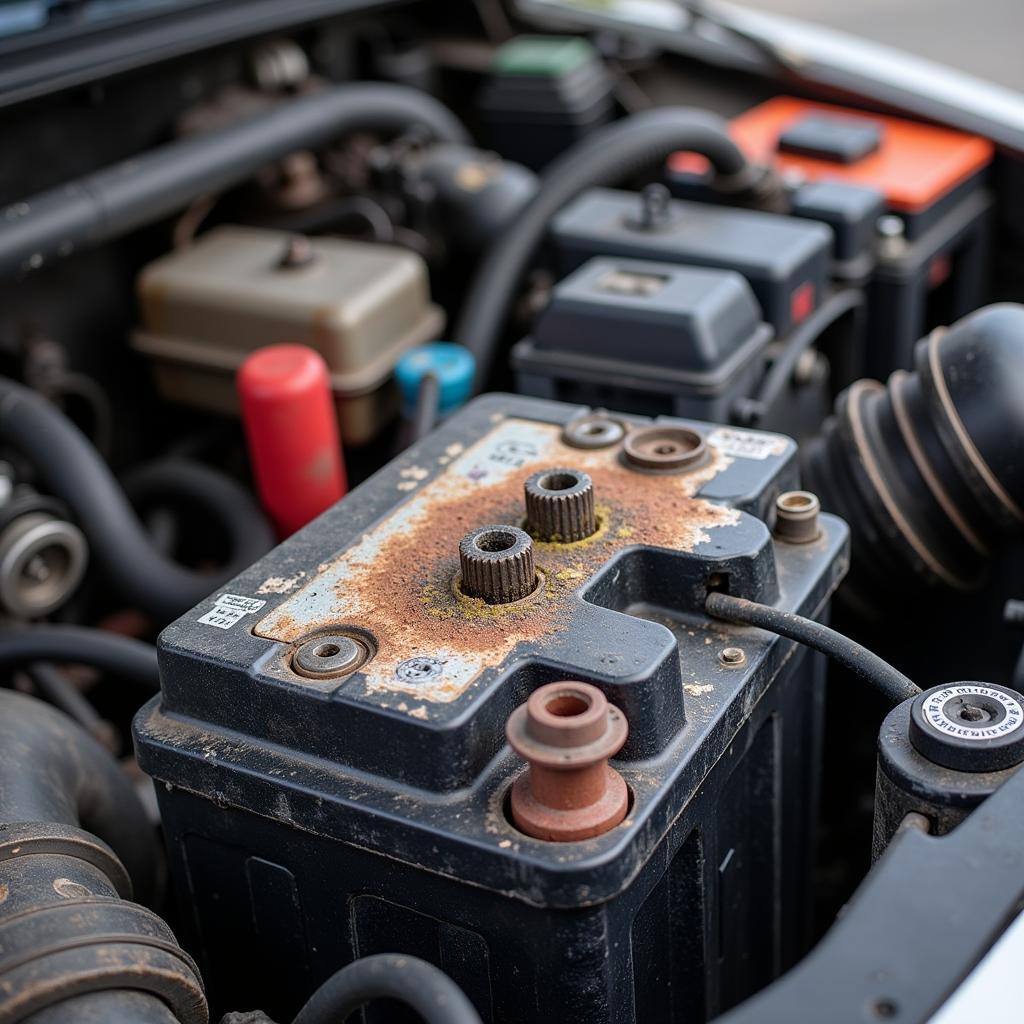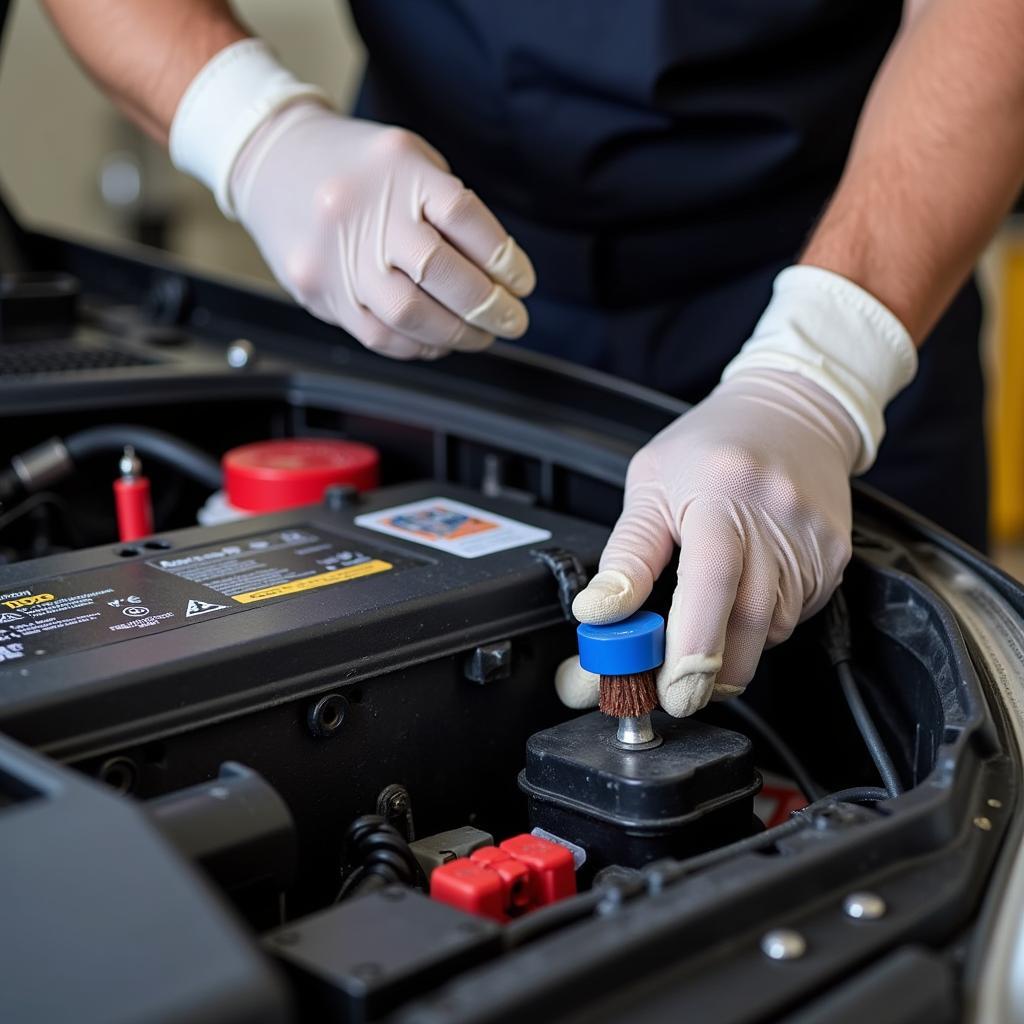Car batteries are essential components of any vehicle. Without a functional battery, your car simply won’t start. While maintenance-free batteries have revolutionized car ownership by eliminating the need for regular watering, they still have a limited lifespan. Understanding the factors that influence a maintenance-free battery’s lifespan and recognizing the signs of a failing battery can help you avoid costly breakdowns and ensure your car’s reliable operation.
What Is a Maintenance-Free Car Battery?
A maintenance-free car battery is designed to require minimal upkeep. This type of battery features a sealed construction that prevents the loss of electrolyte, eliminating the need for regular watering. The technology employed in these batteries allows them to generate a gas during charging, which is then recombined with the electrolyte, preventing any significant loss of fluid. This feature is a significant advantage over traditional lead-acid batteries, which require regular monitoring and top-up with distilled water.
How Long Do Maintenance-Free Batteries Last?
The lifespan of a maintenance-free car battery typically ranges from 3 to 5 years, but several factors can influence its longevity.
Factors Affecting Battery Lifespan
- Driving Habits: Frequent short trips can hinder a battery’s ability to fully charge, leading to premature failure.
- Temperature Extremes: Extreme heat and cold can damage a battery’s internal components, shortening its lifespan.
- Electrical System Issues: Faulty alternators, parasitic draws, or loose connections can drain battery power, accelerating its deterioration.
- Battery Age: Even with proper care, batteries naturally degrade over time.
- Battery Quality: Choosing a reputable brand and a battery that meets your car’s specifications is essential for ensuring a longer lifespan.
Recognizing Signs of a Failing Battery
There are several warning signs to indicate that your maintenance-free car battery is nearing the end of its life:
- Slow Cranking: The engine turns over slowly when you start the car.
- Dim Headlights: Your headlights appear dim or flicker.
- Clicking Noise: You hear a clicking sound when trying to start the car.
- Electrical Problems: Notice issues with other electrical components like power windows, radio, or dashboard lights.
- Warning Lights: Your car’s battery or charging system warning light illuminates on the dashboard.
 Car Battery Problems
Car Battery Problems
Expert Insights
“A maintenance-free battery is a great convenience, but it’s still crucial to pay attention to your car’s electrical system,” says Robert Miller, a seasoned automotive mechanic with over 20 years of experience. “Regularly checking your battery terminals for corrosion and ensuring your alternator is functioning properly can help maximize your battery’s lifespan.”
Tips for Prolonging Battery Lifespan
Here are some tips to extend the life of your maintenance-free car battery:
- Drive Regularly: Make an effort to take longer drives at least once a week to allow the battery to fully charge.
- Avoid Extreme Temperatures: Park your car in a garage or shaded area to protect it from excessive heat or cold.
- Check Battery Terminals: Clean corroded terminals regularly.
- Replace Battery When Needed: Don’t wait until your battery completely fails. Replace it when you notice signs of weakness.
 Car Battery Maintenance
Car Battery Maintenance
Frequently Asked Questions (FAQs)
1. How Often Should I Test My Maintenance-Free Battery?
It’s a good idea to have your battery tested at least once a year, especially if you notice any signs of weakness.
2. Can I Jump-Start a Maintenance-Free Battery?
Yes, you can jump-start a maintenance-free battery, but be sure to follow the proper procedures and use a compatible jumper cable.
3. How Do I Dispose of a Dead Maintenance-Free Battery?
Most automotive retailers or recycling centers will accept old car batteries for proper disposal.
4. How Can I Tell the Age of My Battery?
The date code, usually stamped on the top of the battery, indicates the month and year it was manufactured.
5. Is a Maintenance-Free Battery Really Maintenance-Free?
While you don’t need to add water, these batteries still require regular checks and maintenance to ensure optimal performance.
Conclusion
Understanding the lifespan of a maintenance-free car battery and recognizing the signs of a failing battery are essential for ensuring your car’s reliable operation. By taking proactive steps to maintain your battery and replacing it when needed, you can avoid costly breakdowns and enjoy smooth driving. If you have any questions or need assistance with your car battery, please contact AutoTipPro at +1 (641) 206-8880 or visit us at 500 N St Mary’s St, San Antonio, TX 78205, United States.






Leave a Reply